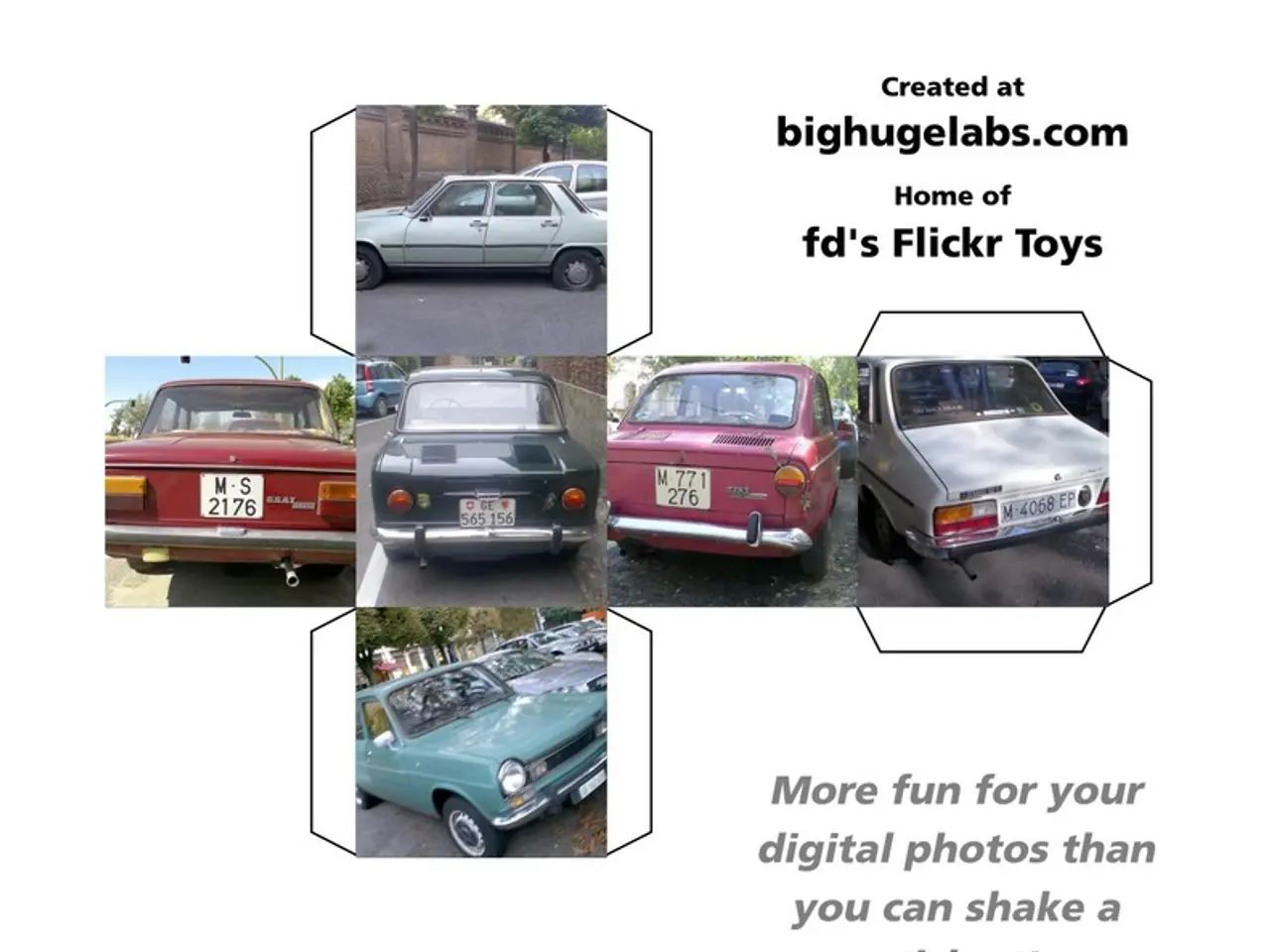Five groundbreaking advancements in automotive technology generating widespread enthusiasm
Connected cars, once a futuristic concept, are now rapidly advancing towards widespread implementation by 2025. These vehicles are set to revolutionise our driving experiences and road safety, with significant developments in various key areas.
One of the most promising advancements is the integration of driver override systems. Autonomous vehicles (AVs) are evolving from Level 1 driver assistance to Level 4 near-full autonomy, with commercial deployments of partial autonomy already available. Driver override mechanisms remain essential for safety and legal reasons in current autonomous driving systems. In emergency situations, these systems prioritise sensitive sensor technology over human assessment of risks, potentially reducing the number of accidents on the roads.
Health monitoring is another area where connected cars are making significant strides. Real-time vehicle health monitoring and remote diagnostics are well-developed and rapidly expanding fields. With the widespread adoption of 4G/5G networks, telematics systems allow continuous monitoring of vehicle status, fault detection, predictive maintenance, and over-the-air updates. Futuristic vehicles will also monitor drivers' health and wellbeing, tracking vital statistics. In case of driver incapacitation, these vehicles can guide them to the kerbside and call for paramedics, and in some cases, even extend health monitoring to include remote vehicle shutdown.
Personalised marketing is another aspect where connected cars are being leveraged. By integrating user data and preferences obtained through in-vehicle connectivity, software-defined vehicle platforms and connected services significantly enhance opportunities for tailored services and marketing.
The communication infrastructure and ecosystem are also undergoing a transformation. 4G and especially 5G cellular networks have become the backbone enabling high-speed, low-latency vehicle connectivity required for these advanced functions. Vehicle-to-everything (V2X) communications and vehicular communication systems are experiencing robust growth, promoting integration of autonomous, connected, and telematic technologies.
Lastly, the shift towards software-defined vehicles, centralised vehicle computing, over-the-air updates, and secure integration via automotive hypervisors is accelerating. The automotive hypervisor market is expected to almost quadruple from $0.24 billion in 2024 to $0.99 billion by 2029, reflecting growing software complexity and the need for secure, flexible control systems.
These advancements have far-reaching implications for various sectors. For instance, police officers will gain the ability to shut down stolen cars through a telematics system, making dramatic police chases less common. Driverless vehicles are intended to reduce the number of collisions, accidents, and injuries, improving road safety. However, the criminal fraternity may express displeasure with the development of remote vehicle shutdown technology.
In suburban areas, driverless vehicles are likely to become a common sight in the near future. Google's driverless vehicles, for example, are designed to navigate roads with more talent and skill than any human driver. These advancements are not just about convenience; they are about safety, efficiency, and the future of personalised driving experiences.
- The integration of software-defined vehicles and automotive hypervisors in the transportation industry could improve road safety by allowing police officers to shut down stolen cars via a telematics system, potentially reducing dramatic police chases.
- In the automotive industry, connected cars' technology advancements, such as health monitoring and personalized marketing, will not only enhance driving experiences but also have a significant impact on finance, as the automotive hypervisor market is projected to grow exponentially, reflecting the increasing software complexity and the need for secure, flexible control systems.




